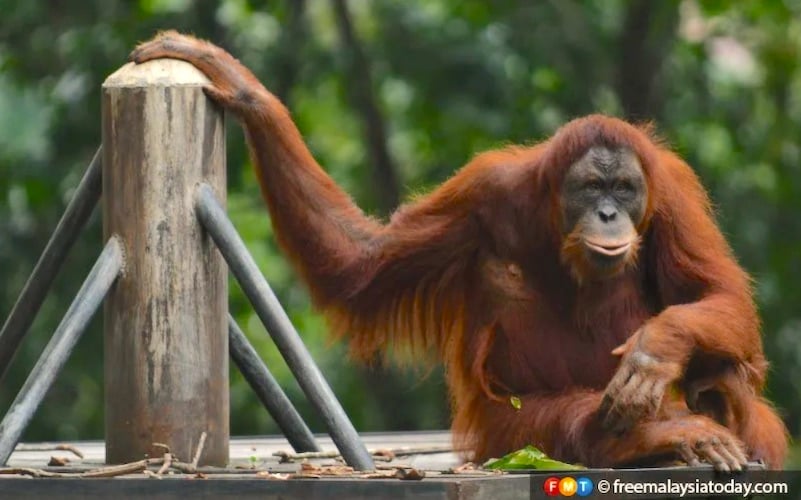
PETALING JAYA: Sabah’s largest group of orangutan are getting a forested lifeline – a wildlife corridor across oil palm plantations that will link a forest reserve to a wildlife reserve.
The project, to be carried out over five years, will entail the planting of fast-growing native pioneer species of trees and fig plants. It was inaugurated with a tree planting ceremony earlier this week, with the planting of more than 300 tree seedlings, the Borneo Post reported.
The Tabin wildlife reserve, north-east of Lahad Datu, is considered to be the largest wildlife reserve in Malaysia, occupying about 300,000 acres in the centre of the Dent Peninsula.
Surrounded by oil palm plantations, it is home to an estimated 1,200 orangutans, the largest population of the animal in the eastern lowlands, the Borneo Post reported.
It also houses other endangered animals including approximately 350 Borneo pygmy elephants, 50 Banteng cattle, and 40 Sunda clouded leopards.
The wildlife corridor is being carried out by plantation group Kuala Lumpur Kepong Bhd (KLK) and the World Wide Fund for Nature (WWF) Malaysia.
According to a UN conservation report, most of Sabah’s orangutans do not exist in official protected areas but are instead found in “production forest landscapes” in the eastern concession.
The wildlife corridor is expected to be a lifeline for the movement of animals as it connects to the wildlife and forest reserves.
The project is being funded by KLK and German company Beiersdorf AG, which manufactures toiletry brands like Nivea.
WWF Malaysia’s head of Sabah conservation, Robecca Jumin, said the partnership with KLK had set a precedent for other companies, particularly those in the palm oil sector, when it comes to corporate responsibility.
KLK’s Sabah senior general manager Dinakaran Madhavan said the company hoped to ensure a sustainable ecosystem that guaranteed wildlife survival and the maintenance of life-supporting systems that are crucial to the local ecology.


